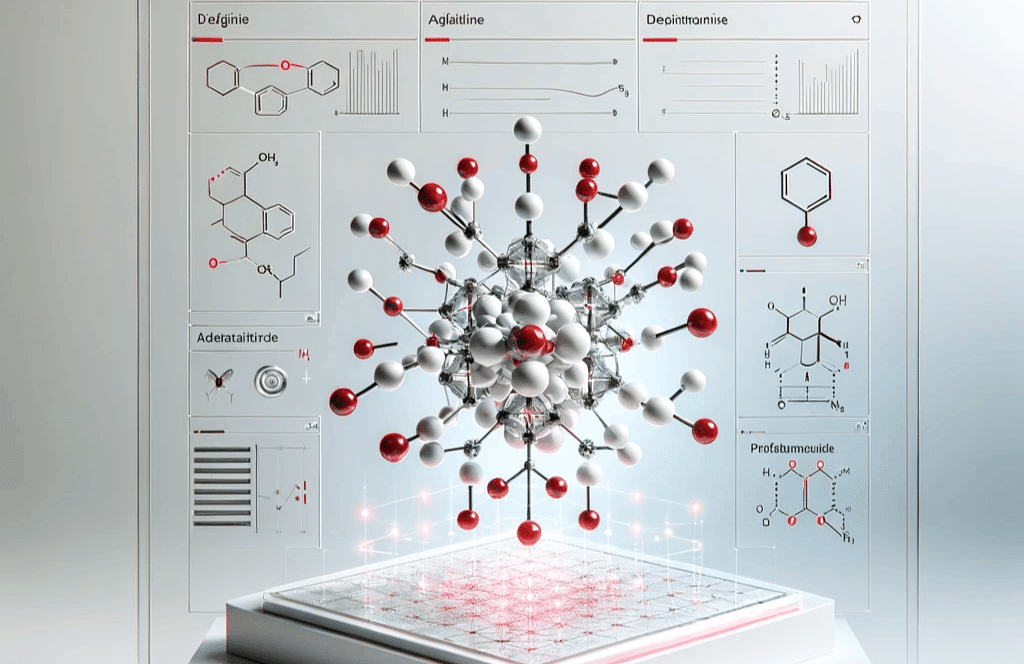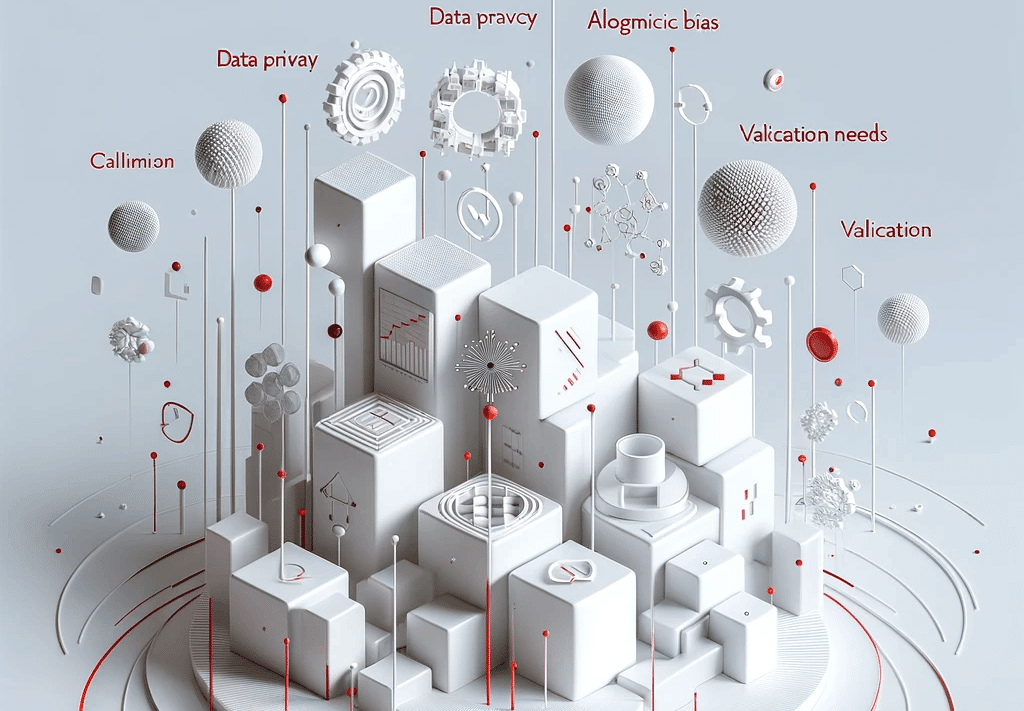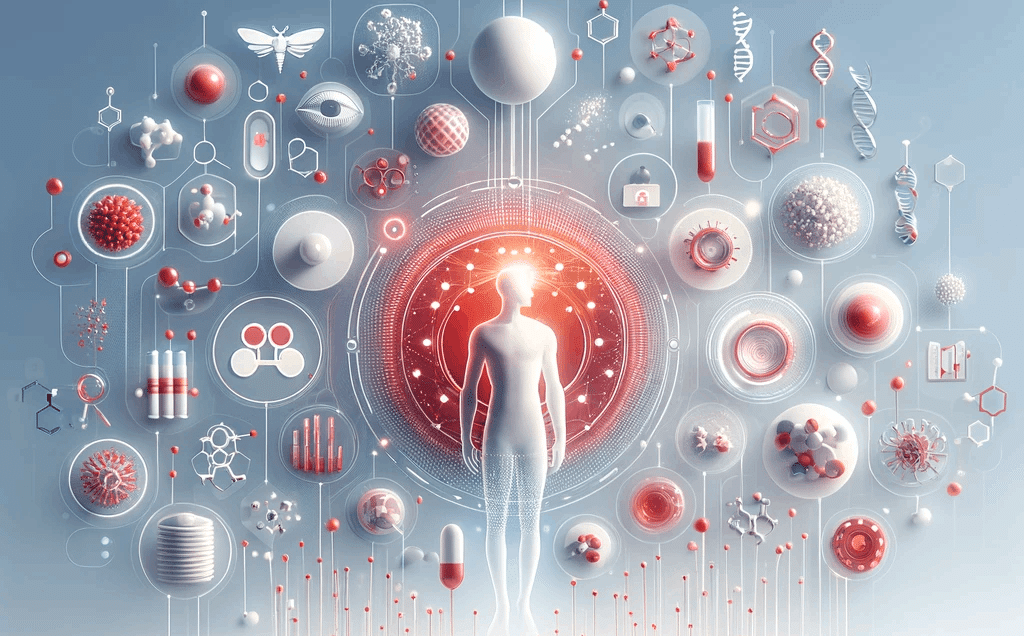Discover how artificial intelligence is revolutionizing drug discovery in the pharmaceutical industry.
The Role of AI in Drug Discovery & Pharmaceutical Development
Fewer than 10% of drug candidates pass the fourth stage of the drug discovery process. For each drug candidate, the project takes up to 10–15 years from the first to final stage. On average, a new drug costs about 2 billion USD, and 90% of this cost and timeline is wasted.
AI changes this game. With its ability to analyze vast amounts of data and make predictions, AI is transforming the drug discovery process, leading to faster and more efficient development of medications that can potentially save lives.
Understanding Artificial Intelligence in Pharmaceutical Development
In order to fully appreciate AI’s impact on drug discovery, it is important to first define and understand artificial intelligence within the context of pharmaceutical development.
AI refers to the simulation of human intelligence in machines that are programmed to think and learn like humans. It involves using algorithms and statistical models to process data, identify patterns, and make predictions.
Interested to learn more about the ways AI reasons?
Learn more about training AI algorithms in our article: “Exploring Generative AI: The Future of Creative and Analytical Technologies”
Defining Artificial Intelligence in the Context of Drug Discovery
When it comes to drug discovery, AI is utilized to expedite the identification of potential drug candidates. Traditionally, this process involved screening thousands or even millions of compounds to identify those with the desired therapeutic properties. With artificial intelligence, this process becomes much shorter. For example, the German biotechnology company Evotec, which uses an AI drug discovery platform, “Centaur Chemist” by Oxford-based Exscientia, managed to cut the drug discovery project from 5 years to 8 months.
This paves the road for the further use of AI in drug discovery. But artificial inteligence already has a long history of use in the pharmaceutical industry.
The Evolution of AI in the Pharmaceutical Industry
Over the years, AI has evolved from being a concept in science fiction to a practical tool.
Initially, it was primarily used for data analysis and mining. Now, AI is capable of far more complex tasks, such as virtual screening, compound optimization, and even predicting the probability of success for a particular drug candidate. Or more. For example, medical companies Roche, Genentech and AstraZeneca are using an AI platform called Trial Pathfinder. The platform automates selecting patients eligible for clinical trials (based on their diagnoses, blood test result, age, weight, etc.). Since the results provided by Pathfinder are accurate, the solution helped to double the number of patients participating in experiments without increasing the hazard ratio.
One of the key advantages of AI in pharmaceutical development is its ability to analyze and interpret vast amounts of data. In drug discovery, researchers generate massive datasets from experiments, clinical trials, and literature reviews. AI algorithms can sift through this data and identify hidden patterns or correlations that may not be immediately apparent to human researchers. This increases the chances of finding promising drug candidates that may have been overlooked otherwise.
Also, AI can assist in optimizing drug compounds. After identifying potential drug candidates, AI algorithms can analyze their chemical structures and predict their properties, such as solubility, stability, and bioavailability. This information helps researchers design and modify compounds to enhance their efficacy and reduce potential side effects. Considering the complexity of analyzing and interpreting large datasets, pharmaceutical companies often choose to hire a data scientist specializing in AI and drug discovery to maximize the efficiency and accuracy of their research efforts.
The Intersection of AI and Drug Discovery
AI and drug discovery are intrinsically linked. AI is able to enhance various aspects of the drug development process. Here, we will explore how AI is transforming drug discovery and its significant impact on pharmaceutical development.
How AI is Revolutionizing Drug Discovery
AI speeds up the identification of potential drug candidates. By analyzing vast amounts of data, AI algorithms can identify molecules that have the potential to be developed into effective medications much faster. This allows researchers to focus on the most promising candidates and move them forward into clinical trials. Moreover, some solutions can cut off the vain drug candidates even at the first stages of a trial. This is the case with an AI platform, iCLUE&ASK, developed by the IT company Standigm. Having started with analyzing ready-made drugs, Standimg has now moved its focus to the earliest stages of drug discovery.. This promises a massive reduction in unnecessary spending.
Moreover, AI is paving the way for personalized medicine by enabling the development of tailored treatments based on individual genetic profiles and disease characteristics. This precision medicine approach holds the promise of improving patient outcomes and reducing adverse effects by delivering therapies that are specifically tailored to each patient’s unique needs.
The Process of Drug Discovery Enhanced by AI
AI is not only speeding up the identification of potential drug candidates but is also enhancing the entire drug discovery process. With AI, researchers can gain deeper insights into the biological mechanisms of diseases, identify new therapeutic targets, and design more effective treatments. Additionally, AI can assist in the optimization of lead compounds, improving their safety and efficacy profiles through molecular modeling and virtual screening techniques. For example, a start-up called Unlearn in San Francisco, California,creates digital twins of patients.who take part in clinical trials. This helps to reduce the number of patients in trials by between 20% and 50%.

Furthermore, AI-powered drug discovery platforms are facilitating collaboration and knowledge sharing among researchers and pharmaceutical companies on a global scale. By harnessing the collective intelligence and expertise of diverse stakeholders, AI is fostering a collaborative ecosystem that accelerates the pace of drug discovery and development. This collaborative approach not only enhances the efficiency of the drug development process but also promotes innovation and breakthrough discoveries that have the potential to transform healthcare and improve patient outcomes.
The Impact of AI on Pharmaceutical Development
The impact of AI on pharmaceutical development extends beyond the drug discovery process itself. It permeates various stages of drug development, improving efficiency, accuracy, and patient outcomes.
AI’s influence on pharmaceutical development is not limited to just the discovery phase; it plays a crucial role in revolutionizing drug development as a whole. From optimizing clinical trial design to enhancing post-market surveillance, AI technologies are reshaping the entire pharmaceutical landscape.
Speeding Up the Drug Discovery Process with AI
Traditionally, the drug discovery process is a lengthy and resource-intensive endeavor. However, with the integration of AI, researchers can significantly reduce the time it takes to identify potential drug candidates. By utilizing AI algorithms to analyze massive datasets and predict the success rate of various compounds early in the process, researchers can focus their efforts on developing the most promising candidates, thereby expediting the entire drug development timeline. To achieve this, pharmaceutical companies often choose to hire a software development team specializing in AI solutions for drug discovery, ensuring the seamless integration of AI technologies into their research workflows.
Moreover, AI’s ability to sift through vast amounts of scientific literature and clinical data in record time enables researchers to uncover hidden patterns and relationships that might have otherwise gone unnoticed. This not only accelerates the drug discovery process but also opens up new avenues for exploration and innovation in pharmaceutical research.
Improving Accuracy and Efficiency in Drug Development
AI not only speeds up drug development, but it also improves accuracy and efficiency in various aspects of the process. For example, AI can enable researchers to identify potential drug-drug interactions and adverse effects early in the development phase, reducing the likelihood of safety issues arising during clinical trials. This leads to safer medications being brought to market and better patient outcomes.
Furthermore, AI-powered predictive modeling can help pharmaceutical companies anticipate market trends, optimize supply chains, and personalize treatment plans for patients based on their unique genetic makeup. This personalized approach to medicine not only enhances patient care but also contributes to the overall sustainability and success of the pharmaceutical industry.
Challenges and Limitations of AI in Drug Discovery
While AI holds tremendous potential in revolutionizing drug discovery and pharmaceutical development, there are also several challenges and limitations that need to be addressed.

Ethical Considerations in AI-Driven Drug Discovery
As AI becomes more integrated into the drug discovery process, ethical considerations arise. For example, issues such as data privacy, transparency, and the responsible use of AI algorithms need to be carefully considered and regulated. It is crucial to ensure that ethical guidelines are in place to safeguard patient privacy and prevent potential biases in AI-driven decision-making.
Technical Hurdles in Implementing AI in Pharmaceutical Development
The implementation of AI in pharmaceutical development also faces technical challenges. The integration of AI into existing research and development infrastructure requires sophisticated algorithms, robust computing resources, and skilled data scientists. Additionally, the validation and regulatory acceptance of AI-driven methodologies are areas that require further development and standardization.
The Future of AI in Pharmaceutical Development
Looking ahead, the future of AI in pharmaceutical development is promising. As technology continues to advance and more research is conducted, AI is expected to play an increasingly vital role in accelerating drug discovery and improving patient outcomes.

Predicted Trends for AI in Drug Discovery
In the coming years, there are several trends that are anticipated to shape the role of AI in drug discovery. These include the continued integration of AI into early-stage drug development, the advancement of predictive modeling and virtual screening techniques, and the utilization of AI for personalized medicine and precision drug targeting.
Potential Breakthroughs in Medicine with AI Technology
The potential breakthroughs that AI technology can bring to medicine are vast. From identifying new therapeutic targets to designing more effective treatments tailored to individual patients, AI has the potential to revolutionize how medications are developed and prescribed. By harnessing the power of AI, researchers and pharmaceutical companies can drive innovation and make significant strides in improving global healthcare.
In conclusion,
The integration of AI into drug discovery is transforming the pharmaceutical development landscape. From expediting the identification of potential drug candidates to improving efficiency and accuracy throughout the drug development process, AI is revolutionizing how medications are developed and bringing us closer to more effective treatments. However, it is important to address the ethical and technical challenges that AI presents to ensure its responsible use and maximize its potential for the benefit of patients worldwide. If you lack the expertise in implementing AI-based solutions, consider hiring an outsourced software team specializing in AI development to ensure your eHealth product is implemented efficiently and effectively. With continued advancements in technology and research, the future of AI in pharmaceutical development looks promising, ushering in a new era of innovation and breakthroughs in medicine.
Have an idea of an AI-based eHealth product but lack experience in how to implement it?
Contact eNest for a free consultation! You will be able to discuss your idea in a one-on-one meeting with a specialist in artificial intelligence and machine learning. You will learn the steps you need to start your project and get an idea of the project’s cost and timeline. Book your free consultation now!
Have a question?
Speak to Data Scientist
 Jagdeep Chawla
Jagdeep ChawlaMS in Data Science
NorthWestern Univeristy, Illinois
MS in Data Science
NorthWestern Univeristy, Illinois




